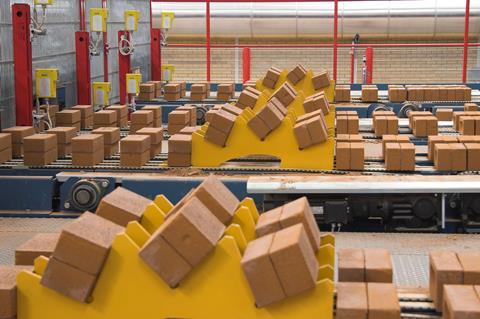Rocketing costs sees Mace revise tender prices up by half for rest of 2022 | News
[ad_1]
In the week the cost of filling up a typical family car topped £100 for the first time, Mace has hiked its tender price forecast for the rest of this year up by nearly half.
In its latest report for Q2, the firm said a string of factors had led it to conclude that tender prices will now go up from a previously forecast 5.5% to 8% – a rise of 45%.
The scale of the rise is underlined by the forecast Mace gave in the third quarter last year when it revised tender prices up by 1.5% to 3.5% – meaning the latest figure is an eye-watering jump of 75% in a year.

It said the ongoing war in Ukraine, rising oil and gas prices and China’s zero covid policy, which is causing factories to be shut down entirely or work at reduced capacities, were all combining to send costs rocketing.
It said the 8% figure was for both London and the rest of the country and Matt Fitzgerald, the firm’s commercial director at its cost consultancy arm, admitted the rises could get worse: “This situation may turn more volatile if China’s zero covid policy stalls their economy and if anti-inflationary measures are applied too hard by central banks. [It] is making predicting near to medium term economic metrics very uncertain.”
And the report warned: “Large, lengthy projects, such as HS2 and Hinkley Point C will see their total costs rise substantially and new developments will find it tougher to get approval. Similarly, even where it is possible for a client to absorb the costs on one project, the number of schemes they take forward may dip due to higher inflation meaning reduced spending power.”
The firm said rising labour costs, where vacancies are at a record high, and the price of materials such as bricks and rebar were all helping to push up costs as well.
It added that smaller firms are set to feel the effects of the jumps if they signed up to fixed-price contracts before the real hikes kicked in this year.
It said: “Fixed price projects are putting contractors, especially smaller subcontractors on such schemes, who have fewer resources and flexibility, at high risk of losing money.
“Furthermore, the current unprecedented material price increases create large amounts of uncertainty, that both clients and contractors may not want to deal with. For clients, this could lead to delaying projects, while any contractors having to bear the risk are likely to respond through supplementary increases in price.”
Mace said that the number of projects set to hit the market would fall if inflation continued to spiral. “Due to the likelihood that material prices will come back down [as well], we have revised down our forecasts for 2024 and 2025 to 2%,” it added. It said it expected tender price inflation next year to be 4.5%.
[ad_2]
Source link






